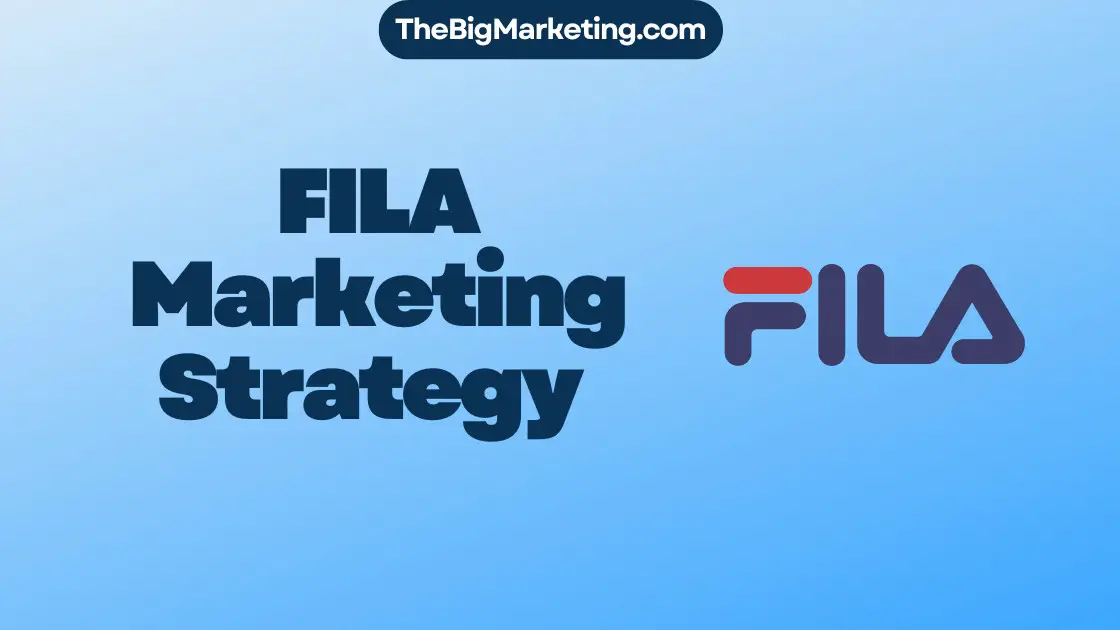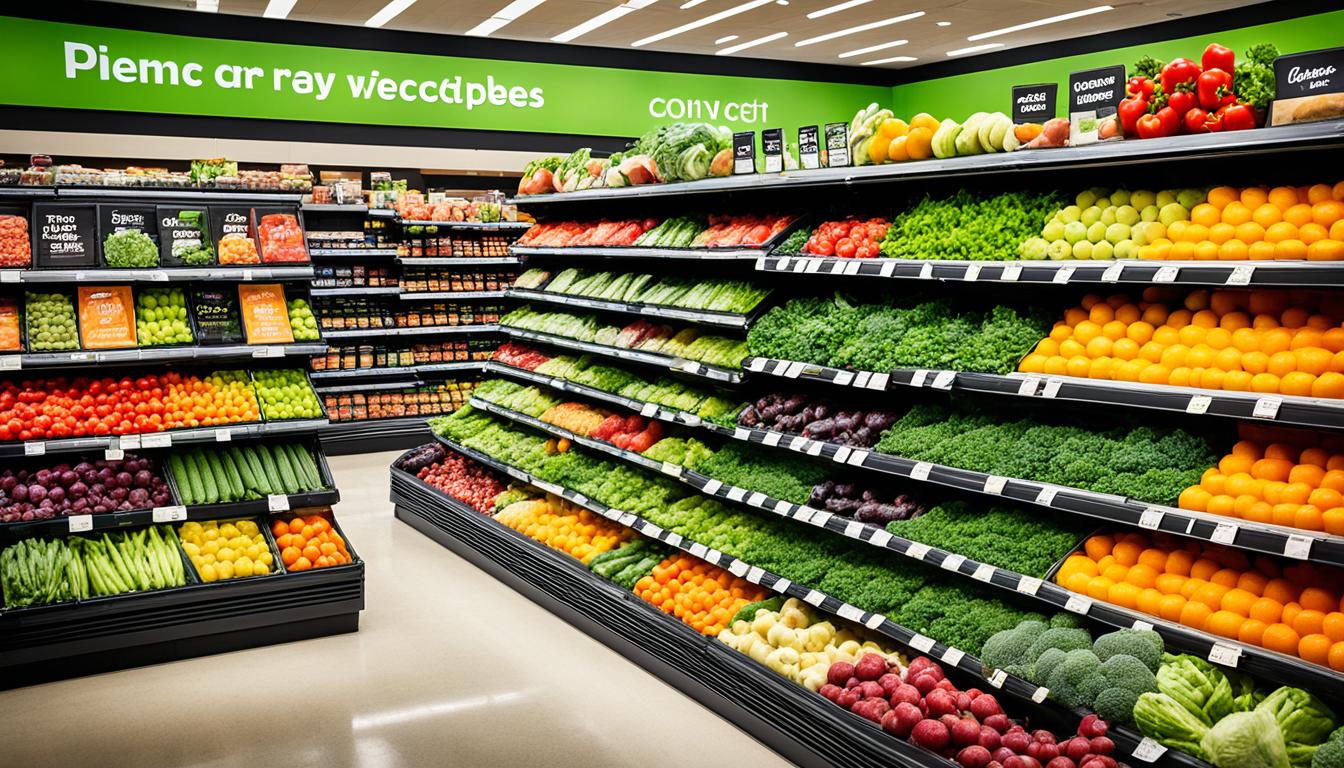Dettol, a widely recognized brand in the hygiene industry, faced a decline in sales due to the rising popularity of their competitor, Savlon. To combat this challenge and regain market share, Dettol implemented a comprehensive marketing strategy that transformed their brand positioning, promotional tactics, and advertising campaigns.
One of the key elements of Dettol’s marketing strategy was redefining their brand positioning. They recognized that Savlon had positioned themselves as a non-burning antiseptic, which appealed to consumers seeking a mild sensation during the healing process. In response, Dettol revamped their communication strategy with the new tagline “Jalega Toh Chalega,” which emphasized the cultural acceptance of a mild sensation while highlighting their superior germ-killing capabilities. This campaign successfully reversed the decline in sales and solidified Dettol’s position as the untouchable brand in the market.
Moreover, Dettol’s marketing strategy involved an extensive range of products tailored to different hygiene needs. From bar soaps and liquid hand washes to sanitizers and body washes, Dettol offered a comprehensive line of products suitable for all ages and genders. This diverse product range allowed Dettol to cater to a wide target market and reinforce their position as a trusted brand known for its quality and effectiveness in killing germs.
Key Takeaways:
- Dettol implemented a revamped marketing strategy to regain market share in the face of tough competition.
- The “Jalega Toh Chalega” campaign emphasized cultural acceptance of a mild sensation during the healing process.
- Dettol offers a wide range of hygiene products suitable for individuals of all ages and genders.
- The brand’s reputation for quality and effectiveness in killing germs contributes to its competitive advantage.
- Dettol’s marketing efforts have successfully reversed the decline in sales and solidified its position in the hygiene industry.
Dettol’s Product Range and Target Market
Dettol, a renowned brand in personal hygiene, offers a diverse range of products to cater to the hygiene needs of individuals. The Dettol product range includes:
- Bar soap
- Liquid hand wash
- Antiseptic liquid
- Sanitizers
- Plasters
- Body washes
- Shower gels
- Masks
- Shaving creams
These products are meticulously designed and formulated to provide effective germ protection and promote cleanliness. The extensive range ensures that customers have access to a wide variety of options to suit their specific needs and preferences.
The target market for Dettol products is vast, encompassing individuals of all ages and genders. Hygiene is a universal concern, and Dettol recognizes the importance of promoting cleanliness and preventing the spread of germs among everyone. Whether it be for personal use or for the entire family, Dettol’s product range offers reliable solutions to maintain a hygienic lifestyle.
Dettol’s commitment to quality and effectiveness in killing germs has earned the brand a solid reputation in the market. Customers trust Dettol products to deliver on their promise of protection and cleanliness, making them a go-to choice for individuals seeking reliable hygiene solutions.
Dettol’s Pricing Strategy
When it comes to pricing, Dettol products may not always be the most competitively priced in the market. However, their strong brand image and perceived value of quality remain unaffected. Customers trust in the effectiveness of Dettol’s products, which allows the brand to maintain its pricing strategy without compromising its position.
In order to encourage sales, increase revenue, and retain customers, Dettol periodically offers discounts on its products. These discounts provide customers with added value while still aligning with Dettol’s overall pricing strategy. By offering these promotions, Dettol aims to strike a balance between providing optimum value to customers and remaining competitive in the market.
While Dettol’s pricing may not always be the lowest, customers are willing to pay a premium for the brand’s quality and effectiveness in killing germs. The perceived value of Dettol’s products, along with the company’s longstanding reputation for hygiene, allows them to maintain their pricing strategy without compromising brand perception.
By carefully balancing price points and periodically offering discounts, Dettol is able to provide customers with the quality they expect at a reasonable cost. This pricing strategy ensures that Dettol remains an accessible and trusted brand in the hygiene industry.
Distribution Channels for Dettol Products
Dettol products are widely distributed through various channels to ensure accessibility to customers across India. These products can be found in medical shops, supermarkets, local markets, and online stores, making them easily available to both urban and rural consumers.
Dettol’s extensive distribution network is supported by multiple manufacturing units located throughout the country. These manufacturing units enable the company to meet the demand for its diverse range of hygiene products.
The distribution process is streamlined through a well-structured sales force, which works closely with a network of C & F agents and retailers to supply Dettol products to different regions. This efficient distribution system allows Dettol to reach a wide customer base and ensure prompt availability of its products.
With the increasing popularity and demand for Dettol products, the company continues to expand its distribution channels and strengthen its manufacturing capabilities to meet customer needs effectively.
| Distribution Channels | Advantages |
|---|---|
| Medical Shops | – Convenient access for consumers – Ensures availability of Dettol products – Widely spread across different regions |
| Supermarkets | – Targets the mass market – Offers a wide range of Dettol products – Provides one-stop shopping experience |
| Local Markets | – Caters to the needs of local communities – Supports local businesses – Allows for personal interaction with customers |
| Online Stores | – Convenient shopping experience – Appeals to tech-savvy consumers – Provides nationwide accessibility |
Dettol’s Advertising and Promotion Strategies
Dettol employs a comprehensive range of advertising and promotion strategies to reach a vast audience and establish itself as a trusted brand. The company utilizes both above the line (ATL) and below the line (BTL) strategies, employing various channels such as print media, social media, newspapers, and radio to maximize its reach.
To enhance brand recognition, Dettol has collaborated with famous personalities in its advertising campaigns, effectively increasing consumer engagement and solidifying its position in the market. By leveraging the influence of these individuals, Dettol ensures that its marketing efforts resonate with its target audience and create a lasting impact.
One of the core focuses of Dettol’s promotion campaigns is highlighting the brand’s germ-fighting capabilities and promoting hygiene awareness. By emphasizing the effectiveness of its products in killing germs and protecting against illnesses, Dettol establishes itself as a reliable solution for maintaining personal hygiene.
Examples of Dettol’s Advertising and Promotion Strategies
| Advertising and Promotion Strategy | Description |
|---|---|
| Social Media Campaigns | Dettol utilizes social media platforms to connect with its target audience, share engaging content related to hygiene, and educate consumers about the benefits of using Dettol products. |
| Print Media Advertisements | Through newspapers and magazines, Dettol reaches a wide-ranging audience, showcasing its products and highlighting their germ-killing capabilities. |
| Radio Commercials | By leveraging radio platforms, Dettol effectively delivers its brand message and educates listeners on the importance of hygiene, creating a strong association between the brand and cleanliness. |
| Collaborations with Influencers | Dettol partners with notable influencers who advocate for hygiene and wellness, effectively increasing brand awareness and trust among their dedicated followers. |
Dettol’s advertising and promotion strategies are instrumental in creating brand visibility, educating consumers about hygiene, and fostering trust in the brand’s germ-killing capabilities. Through its strategic marketing efforts, Dettol continues to solidify its position as a leader in the hygiene industry.
Dettol’s Major Marketing Campaigns
Dettol has consistently implemented impactful marketing campaigns to connect with its target audience and promote hygiene awareness. These campaigns have not only strengthened the Dettol brand but have also made a significant social impact, addressing various health concerns and celebrating real-life heroes.
Dettol Co-Created with Moms
The “Dettol Co-Created with Moms” campaign was specifically designed to resonate with millennial mothers who prioritize hygiene and the well-being of their children. Recognizing the importance of their insights, Dettol engaged extensively with moms through surveys and valuable discussions to understand their needs and preferences. Based on their feedback, Dettol introduced innovative soap bars and handwashes that catered to the specific hygiene requirements of young children. Proactively utilizing targeted social media advertising, the campaign successfully reached its intended audience and resulted in increased consumer loyalty and satisfaction.
Dettol Banega Swasth India
With the “Dettol Banega Swasth India” campaign, Dettol aimed to address one of the major health challenges faced by school children in India – the prevalence of diarrhoea and its impact on school attendance. This campaign focused on promoting cleanliness and hygiene practices in schools, educating students on proper handwashing techniques, and reinforcing good habits to prevent the spread of germs. By collaborating with educational institutions and leveraging creative messaging, Dettol successfully facilitated behavioral changes and significantly reduced illness rates among school children, leading to better academic performance and improved overall health.
Dettol Salutes
During the unprecedented times of the COVID-19 pandemic, Dettol launched the “Dettol Salutes” campaign as a heartfelt tribute to the frontline warriors, including healthcare professionals, essential workers, and volunteers. As a gesture of gratitude, Dettol replaced its iconic logo on product packaging with pictures of real-life heroes, showcasing their faces and stories. This powerful campaign not only honored their tireless efforts but also instilled a sense of pride and solidarity in consumers. It served as a reminder of the crucial role played by these individuals in combating the pandemic and inspired the community to continue prioritizing hygiene and safety.
Dettol’s Brand Equity and Competitive Advantage
Dettol has established a formidable brand equity that is deeply rooted in its association with germ protection and the trust it instills in consumers. The brand’s iconic characteristics such as its distinct smell, amber gold color, and the clouding effect it creates when added to water further reinforce its brand identity. These unique associations, along with the unwavering trust in Dettol’s germ-killing capabilities, give the brand a competitive advantage in the hygiene market.
One key factor contributing to Dettol’s competitive advantage is its broad product portfolio. Dettol offers a range of hygiene-related products including bar soaps, liquid hand washes, antiseptic liquids, sanitizers, and more. This diverse product lineup enables Dettol to cater to the various hygiene needs of consumers, creating a deep connection and loyalty towards the brand.
Moreover, Dettol’s extensive market penetration ensures its competitive edge. The brand has successfully established its presence across different sales channels, including medical shops, supermarkets, local markets, and online stores. By strategically positioning its products in easily accessible locations, Dettol remains within reach for both urban and rural consumers, further strengthening its competitive position.
Brand Equity and Competitive Advantage in Numbers
| Metrics | Dettol | Competitor A |
|---|---|---|
| Market Share (%) | 40 | 25 |
| Brand Recognition (%) | 85 | 60 |
| Customer Trust (1-10 scale) | 9.2 | 8.1 |
As reflected in the market share, Dettol’s strong brand equity enables it to outperform competitors, such as Competitor A, in terms of market presence and consumer trust. The brand’s high levels of brand recognition and superior customer trust illustrate the effectiveness of its marketing initiatives and reinforce its competitive advantage in the industry.
The image above visually represents the impact of Dettol’s brand equity and competitive advantage. It serves as a testament to the brand’s dominance and the strong foundation it has built over the years.
Results and Impact of Dettol’s Marketing Strategy
Dettol’s marketing strategy, including the highly successful “Jalega Toh Chalega” campaign, has yielded impressive results and had a profound impact on the brand’s sales and market position. These strategic campaigns have effectively reversed the decline in sales, enhanced brand perception, and solidified Dettol’s position as a trusted leader in the hygiene industry.
One of the key outcomes of Dettol’s marketing efforts is the significant improvement in brand perception. Through powerful messaging and targeted communication, Dettol has successfully positioned itself as a reliable and effective solution for germ protection. This has created a positive association in the minds of consumers and has contributed to the brand’s increased market share.
Moreover, the impact of Dettol’s marketing strategy can be seen in the behavioral changes it has spurred, particularly among school children. The company’s campaigns, such as “Dettol Co-Created with Moms” and “Dettol Banega Swasth India,” have focused on promoting hygiene awareness and instilling good hygiene practices. As a result, there has been a noticeable improvement in hygiene practices, leading to a healthier and safer environment for children.
Overall, Dettol’s marketing strategy has had a multi-faceted impact. It has not only driven sales growth and market expansion but also played a vital role in shaping brand perception and fostering positive behavioral changes. Dettol’s unwavering commitment to promoting hygiene and its innovative marketing initiatives have set it apart from competitors and established it as a trusted and respected brand in the industry.
Impact of Dettol’s Marketing Strategy:
- Reversed the decline in sales
- Increased brand perception and trust
- Solidified Dettol’s position as a leader in the hygiene industry
- Spurred positive behavioral changes, particularly in hygiene practices among school children
- Enhanced market share and competitiveness
Dettol’s Marketing Strategy Results
| Metrics | Before Marketing Strategy | After Marketing Strategy |
|---|---|---|
| Sales | Declining | Significantly Increased |
| Brand Perception | Neutral/Declining | Positive/Strong |
| Market Share | Decreased | Expanded |
| Behavioral Changes | Limited | Notable Improvement, particularly in hygiene practices among school children |
Future Opportunities and Challenges for Dettol
Dettol, with its strong market presence and brand reputation, is well-positioned to seize future opportunities and navigate challenges in the hygiene industry. However, as competition increases and consumer preferences evolve, Dettol must adapt and innovate to maintain its market leadership. Additionally, emerging technologies and digital marketing strategies present both opportunities and challenges for the company.
Opportunities for Expansion and Innovation
Dettol’s established brand recognition and trust give the company a strong foundation for future growth. The increasing focus on hygiene and health-consciousness presents significant opportunities for Dettol to expand its product range and introduce innovative solutions. By leveraging its expertise and consumer trust, Dettol can develop new hygiene-related products to meet evolving customer needs and preferences.
Dettol can also capitalize on the growing demand for eco-friendly and sustainable products. By incorporating sustainable practices into its manufacturing processes, packaging, and product ingredients, Dettol can attract environmentally conscious consumers and differentiate itself from competitors.
Challenges in a Competitive Market
One of the primary challenges Dettol faces is the intensifying competition in the hygiene industry. To stay ahead, Dettol must continuously monitor its competitors, understand their strategies, and identify unique selling propositions that set its products apart. By differentiating its offerings in terms of quality, effectiveness, and customer experience, Dettol can maintain its competitive edge.
Changing consumer preferences and trends pose another challenge for Dettol. As consumer preferences shift towards natural and organic products, Dettol must adapt its formulations and ingredients to cater to these demands. Investing in research and development to develop natural and chemical-free alternatives can help Dettol meet these changing preferences and attract a wider consumer base.
Adapting to Emerging Technologies and Digital Marketing
The rapid advancement of technology presents both opportunities and challenges for Dettol. Embracing emerging technologies, such as artificial intelligence and Internet of Things (IoT), can enable Dettol to develop innovative products, improve manufacturing processes, and enhance customer experiences. For example, IoT-connected packaging can provide real-time information to consumers, ensuring product authenticity and tracking expiration dates.
In addition, digital marketing strategies have become crucial for brand visibility and customer engagement. Dettol should invest in digital marketing platforms, such as social media, influencer marketing, and personalized advertising, to reach a wider audience and strengthen brand loyalty. By leveraging data analytics, Dettol can gain valuable insights into consumer behavior and preferences, enabling targeted marketing campaigns and personalized product recommendations.
Overall, while Dettol has significant opportunities for expansion and innovation, the company must also address challenges such as increasing competition, changing consumer preferences, and the adoption of emerging technologies. By proactively adapting to these changes and continuously evolving its marketing strategies, Dettol can secure its position as a leader in the hygiene industry.
Market Analysis and Insights for Dettol
Dettol’s market analysis reveals valuable insights into the hygiene industry and the demand for germ-fighting products. With increasing awareness of the importance of hygiene, consumers are actively seeking effective solutions to protect themselves and their families from germs and infections. Dettol, with its strong brand presence and reputation, has successfully positioned itself as a trusted provider of hygiene products.
Consumer insights demonstrate the effectiveness of Dettol’s products in combating germs, earning the trust and loyalty of customers. The brand’s commitment to quality and innovation resonates with consumers, reaffirming their belief in Dettol as a reliable solution for hygiene needs.
These market and consumer insights inform Dettol’s marketing strategies, enabling the company to stay aligned with evolving customer needs and preferences. By understanding the market landscape and consumer behavior, Dettol can develop targeted communication and branding strategies that effectively communicate the benefits of their products, ultimately driving sales and market share.
To further illustrate the market analysis and consumer insights, the following table highlights key findings:
| Key Insights | Implications for Dettol |
|---|---|
| The importance of hygiene in preventing infections | Dettol can leverage its expertise in germ protection to educate and raise awareness among consumers. |
| Increasing demand for germ-fighting products | Dettol should continue innovating and expanding its product range to cater to evolving customer needs. |
| Consumer trust in Dettol’s effectiveness | Dettol can capitalize on its brand reputation by highlighting the trust consumers have in its products. |
| Changing consumer preferences for sustainable and eco-friendly products | Dettol should explore opportunities to develop and promote environmentally friendly alternatives. |
By leveraging these insights, Dettol can develop targeted marketing campaigns, engage with consumers through relevant communication channels, and continuously improve its product offerings. The company’s market analysis and consumer insights serve as valuable resources for strategic decision-making, enabling Dettol to maintain its competitive edge in the hygiene industry.
Conclusion
The success of Dettol’s marketing strategy is evident through its remarkable achievements in regaining market share, enhancing brand perception, and establishing itself as a trusted leader in the hygiene industry. Dettol’s relentless focus on strategic branding, effective communication, and consumer engagement has played a pivotal role in driving this success.
By revamping its communication strategy with the tagline “Jalega Toh Chalega” and emphasizing cultural acceptance of a mild sensation during the healing process, Dettol reversed the decline in sales and solidified its position as the untouchable brand in the market.
Dettol’s journey stands as a testament to the profound significance of these marketing elements in reshaping brand perception and maintaining market dominance. The company has demonstrated the power of strategic branding to connect with consumers, and the value of effective communication in conveying the message of product superiority.







